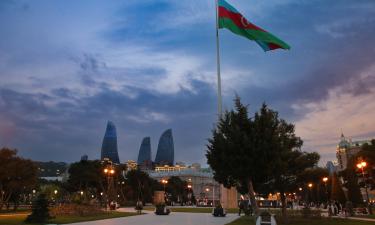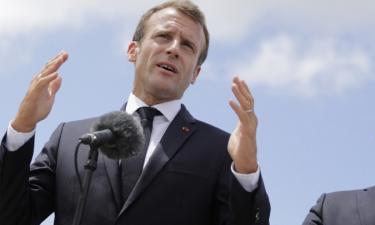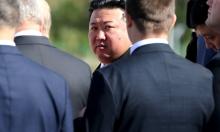Chavez: “My opponent in the recall vote is George W. Bush”
 The Venezuelan leader reveals his strategy for defeating the opposition on the August, 15 referendum over his rule. Mr. Chavez has also accused the US of funding his political foes.
The Venezuelan leader reveals his strategy for defeating the opposition on the August, 15 referendum over his rule. Mr. Chavez has also accused the US of funding his political foes.
Venezuela’s President Hugo Chavez decided to stay in power despite opposition’s attempts to oust him in recall vote scheduled for August 15. On June, 12 Chavez doubled the bet by accusing opposition of receiving US funding and addressed his statement to the White House, “My opponent in the recall vote is George W. Bush”.
In fact, Chavez’s strategy is not new. In 1946 one of his most admired Latin American leaders, the three times Argentine President Juan Domingo Peron, won the elections under the slogan: “Braden or Peron”, denouncing Spruille Braden, the US ambassador in Buenos Aires at that time. By connecting local opposition with the White House, Chavez avoids a direct confrontation with his internal foes and polarizes all the way.
Disregarding Chavez’s political strategies, the local opposition proved in the past to be the best option for the White House. Recently, one of opposition leaders claimed that in case the opposition defeats Chavez, PDVSA –countries oil giant- would surpass current crude pumping. In these times, it sounded like celestial melody to the US State Department.
Moreover, the same leaders that today push for a “democratic solution” to Venezuela’s crisis welcomed US immediate acknowledge of the military – and antidemocratic - coup that temporarily ousted Chavez in April, 2002.
Chavez publicly accused Maria Corina Machado and other members of her Sumate pro-referendum group of "treason" because they had received funds allocated by the U.S. Congress. "The (alleged) crime is conspiracy ... which carries a jail term of eight to 16 years for people who conspire against Venezuela's republican system," Machado said after hearing from prosecutor Luisa Ortega about the possible charge she faced.
Machado denies conspiracy, but has admitted her organization received financing from the National Endowment for Democracy (NED), a private US body funded by the US Congress and supported by the State Department. Under Venezuelan law, Machado can remain free until a court orders her arrest.
Machado’s case is an interesting reflection of US double standards. During the political crisis in Bolivia, which ended with the presidency of the pro-US conservative leader Gonzalo Sanchez de Lozada, the US State Department accused NGO’s of funding the leftist opposition, while, as Machado admitted, US NGO’s were funding the right-wing opposition in Venezuela.
According to Washington’s point of view, NGO’s helped trade unions and leftist social movements of subverting the democratic order in Bolivia. If that is true, what about Machado’s Sumate group? Didn’t her allies tried to topple Chavez – a constitutionally elected President - by the use of force?
Perhaps Chavez is right. His ultimate opponent is Washington. No matter the case, as long as the US State Department keeps on its efforts to understand nothing about Latin America, Chavez’s bet stands all the chances to win.
Hernan Etchaleco
Subscribe to Pravda.Ru Telegram channel, Facebook, RSS!





